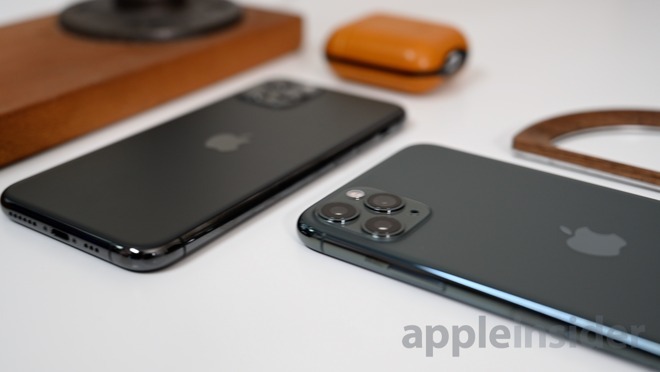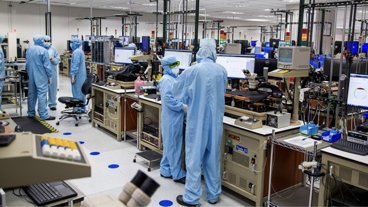Apple is expected to increase reliance on liquid crystal polymer (LCP) flexible printed circuit (FPC) antenna technology with its next-generation iPhone, due out in 2020, but a dearth of suppliers poses a risk to production, according to TF Securities Analyst Ming-Chi Kuo.
In a note to investors this week, Kuo predicts iPhone's mass appeal will grow demand for Apple's LCP FPC parts significantly to 220 million units in 2020, up 110% from current orders.
Some 70 to 75% of next year's iPhone 12 models will incorporate LCP FPC hardware, up from 45 to 50% in 2019. Apple's anticipated shift to 5G mmWave technology is in part driving high adoption rates, with 5G-enabled iPhones accounting for 15 to 20% of total shipments in the second half of 2020, Kuo says.
According to the analyst, 5G models require three LCP FPC units compared to one for common 4G versions.
In addition to a 5G iPhone, iPhone 11's successor is expected to adopt LCP FPC for its upper antenna. Current iPhone 11 models rely on modified polyamide (MPI) FPC tech. Filling out Kuo's calculations, the iPhone 7, which did not rely on LCP FPC, was discontinued in September, while shipments of iPhone XR — also not equipped with LCP FPC — will decrease in 2020 as the handset is phased out.
Demand will further increase with iPad and Apple Watch also set to more widely incorporate flexible LCP designs next year.
Murata is Apple's sole supplier of advanced antenna parts for iPhone 11 Pro, according to Kuo, and the company might not be capable of handling the massive jump in order volume.
"The greatest challenge for Apple's FPC procurement strategy in 2020 is to find new LPC FPC suppliers who can offer massive stable shipments, besides Murata," Kuo writes.
Among Apple's new LCP FPC suppliers, Avary/ZDT represents the best chance at lowering supply risk thanks to its lead in development, the analyst says. The firm is already shipping Apple Watch LCP FPC parts and its production lines have been qualified by Apple.
Existing Apple supplier Career is also in the running, but Kuo believes the firm has been tapped to provide LCP FPC modules for "iPhone SE 2," not high-volume models.
"Currently, only Avary/ZDT could simultaneously adopt Panasonic and Azotek's LCP materials for the LCP FPC production among new LCP suppliers who are being qualified by Apple," Kuo writes. "We think that this will lower the procurement risk and cost."
LCP offers a number of operational advantages to legacy materials including superior frequency attenuation, thermal performance and moisture resistance. The substrate was first used in the production of iPhone's LTE antenna modules in 2017 with iPhone X and iPhone 8, and has since proliferated to other major product lines.
 Mikey Campbell
Mikey Campbell







-m.jpg)






 Charles Martin
Charles Martin
 Marko Zivkovic
Marko Zivkovic
 Andrew Orr
Andrew Orr
 Amber Neely
Amber Neely

 William Gallagher and Mike Wuerthele
William Gallagher and Mike Wuerthele










8 Comments
So this is more a segment investment analysis call than a view of Apple? Makes sense, though once burned by that sapphire tangle, twice shy.
Why are they calling it iPhone 12?
Is there not going to be any 11S? Are they jumping directly to 12 from 11?
There will not be a 5G iPhone come September. The networks will still not even cover the major metropolitan areas, let alone the locales where iPhones are mostly likely to be purchased en mass globally.
Just as the sun rises it can be predicted analysts will either predict sales failures or supply chain failures of any new iPhone.